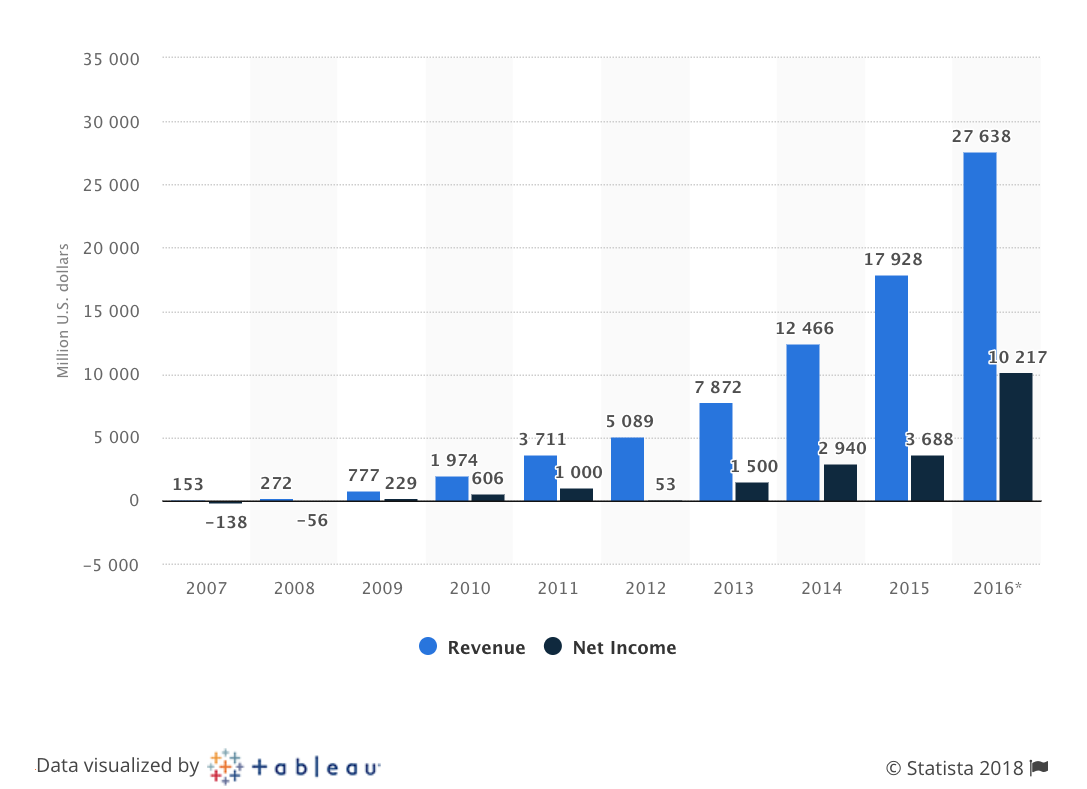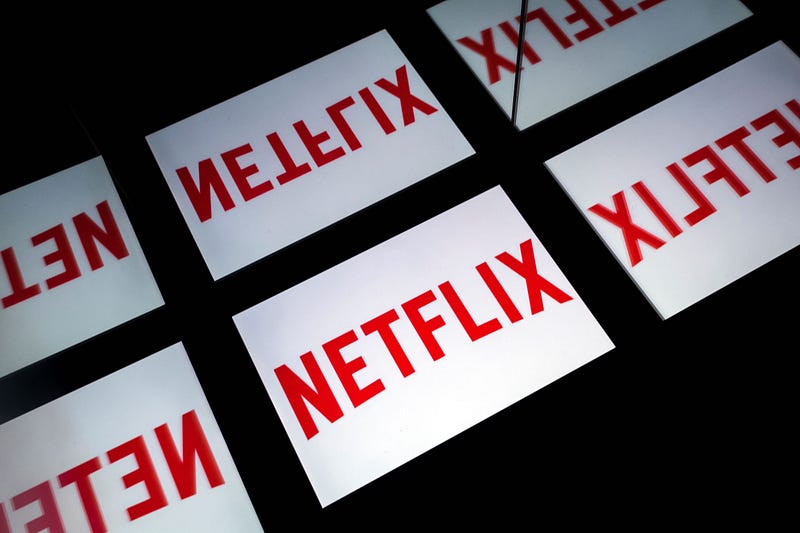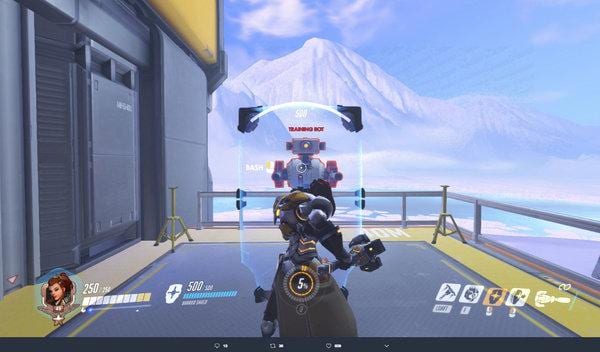Apr 17, 2019 | featured, games & graphics, networking

While some teams fashion themselves after traditional sports franchises, other are thinking much bigger than wins and losses, focusing on content creation and even apparel as valuations continue to spiral higher.
Source: As millions of dollars pour in, esports teams offer varying visions of the future – The Washington Post
Apr 6, 2019 | audio, featured

“Live-coding” parties are the latest phenomenon in underground electronic music culture.
Source: DJs of the Future Don’t Spin Records—They Write Code | WIRED
Apr 2, 2019 | featured, networking

You cannot fix Facebook without completely gutting its advertising-driven business model. And because he is required by Wall Street to put his shareholders above all else, there’s no way in hell Zuckerberg will do that.
Source: Facebook Can’t Be Fixed. – NewCo Shift – Medium
Mar 23, 2019 | algo, featured, trends

Consider these facts: 80 percent of viewing hours streamed on Netflix originate from automated recommendations. By some estimates, nearly 35 percent of sales at Amazon originate from automated recommendations. And the vast majority of matches on dating apps such as Tinder and OkCupid are initiated by algorithms. Given these numbers, many of us clearly do not have quite the freedom of choice we believe we do.
Source: Free Will in an Algorithmic World – OneZero
Mar 23, 2019 | algo, featured, mobile

Boris Katz has spent his career trying to help machines master language. He believes that current A.I. techniques aren’t enough to make Siri or Alexa truly smart.
Source: The Man Who Helped Invent Virtual Assistants Thinks They’re Doomed Without a New A.I. Approach
Mar 23, 2019 | featured, networking

If you just want the social recognition of having followers, just buy 20k followers for a couple of dollars and just post stories that no one will watch. It’ll impress your friends but it will have absolutely no impact on your business nor on your brand. You’ll feel like the popular one among your friends for a couple weeks before Instagram understands that you’re a cheater and deletes your account or seriously reduces your organic reach.
Source: Is it still possible to grow on Instagram in 2019? – Charles Tumiotto Jackson – Medium
Mar 21, 2019 | algo, featured, networking, trends

Inside the big, twisted industry of neighborhood data collection
Source: How Google Wiped a Neighborhood off the Map – OneZero
Mar 17, 2019 | featured, networking
 Ma
Ma
Ling was one of China’s most popular bloggers. Then she became a target in President Xi Jinping’s campaign to purge popular voices that the Communist Party finds threatening.
Source: Why China Silenced a Clickbait Queen in Its Battle for Information Control – The New York Times
Mar 7, 2019 | featured, networking, video

How the streaming giant presents itself as a TV and movie super fan and uses meme-able, self-aware social media content to keep us watching more.
Source: Inside the Secretly Effective — and Underrated — Way Netflix Keeps Its Shows and Movies at the…
Feb 26, 2019 | algo, featured, mobile, networking

The AI behind retail websites has learnt the best strategy is to copy each other’s prices – and that can see them ‘collude’ to keep them high.
Source: Online shopping algorithms are colluding to keep prices high
Feb 22, 2019 | featured, video

On Sunday, Netflix will compete for its first Best Picture Oscar for “Roma,” the Mexican filmmaker Alfonso Cuarón’s exploration of his childhood in Mexico City. A win by “Roma” would be a fitting testament to Netflix’s ambitions. Virtually alone among tech and media companies, Netflix intends to ride a new kind of open-border digital cosmopolitanism to the bank.
Source: Opinion | Netflix Is Shrinking the World – The New York Times
Feb 21, 2019 | featured, mobile, networking, trends

Armed with this confidence, in the years since Y2K, we have created more and more complex networks and systems to enhance, guide, or even take over many facets of our daily lives. Whereas in 1999, many aspects of our day-to-day living remained offline, today little is left untouched by computer systems, networks, and code: Talking to friends and family, reading a book, listening to music, buying clothes or food, driving a car, flying from place to place — all of these activities depend on the network. Increasingly, the network extends to devices that, in 1999, were not considered to have much technological potential: household appliances like refrigerators or thermostats.
Now, we’re discovering what a false sense of security we’ve created. Along with it should come the realization of just how little we understand about the programs that permeate our lives and the networks that link them. Unlike 20 years ago, we appear less and less capable of predicting what will go wrong, or of stopping it before it does.
Source: We’re Finally Learning the Lesson of Y2K — and It’s Too Late
Feb 21, 2019 | featured, games & graphics, trends

In internet land and our digital life, few stories over the past few months have been so epic and persuasive as Fortnite’s growing popularity. Netflix famously said in January, 2019 that Fortnite was a bigger competitor for attention than Hulu or HBO.
Source: The Rise of Fortnite is the Future of Gaming – FutureSin – Medium
Feb 14, 2019 | algo, featured, games & graphics

Lego’s first foray into AR relies on some of the worst clichés of mobile gaming.
Source: Lego Hidden Side uses augmented reality in the worst way possible
Feb 6, 2019 | audio, featured

Since its founding in 2006, Spotify’s business model has been simple. It takes music owned by musicians and record labels and lets people listen to it for free interspersed with ads or without interruptions for a monthly fee. It passes along most of these revenues to the owners of the music, keeping a cut for themselves.
As Netflix and other content platforms have learned, this middle-man model is not particularly lucrative or sustainable. In Spotify’s case, the record labels have a lot of leverage because if they choose to block their content from the platform, Spotify would basically die. As a result, labels are able to extract about 75% of Spotify’s revenue.
Source: The economics of why Spotify wants to be like Netflix — Quartz
Feb 6, 2019 | featured, networking

Gen Z appears mostly indifferent to Facebook, but they can’t escape the social network; it’s their parents who are doing most of the posting.
Source: Teens Don’t Use Facebook, but They Can’t Escape It, Either | WIRED
Jan 26, 2019 | featured, games & graphics, trends

The strange saga of a fake female gamer and her encounter with the misogynistic world of e-sports. Women who compete professionally in e-sports face heckling from teammates and fans, and are sometimes accused of serving as fronts for male players. At the same time, team owners with an eye toward reaching a potentially gigantic untapped market of young female viewers remain eager to diversify their rosters to provide an entry point for girls who might never have thought of video
Source: Opinion | ‘Ellie’ Was a Rising Star in the Gaming World. Or Was She? – The New York Times
















